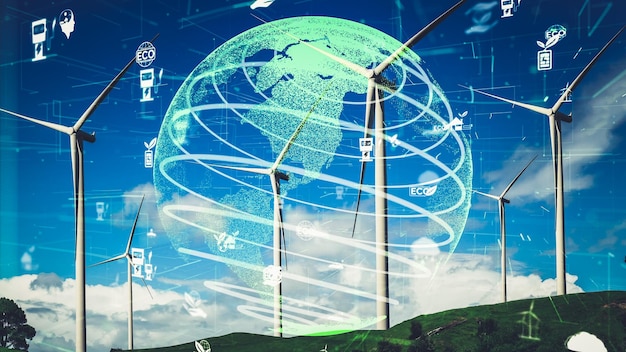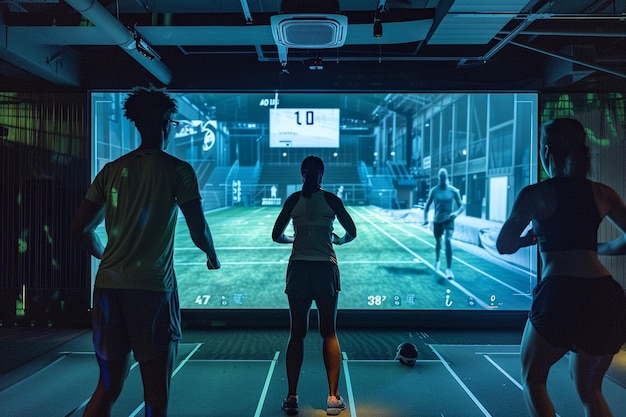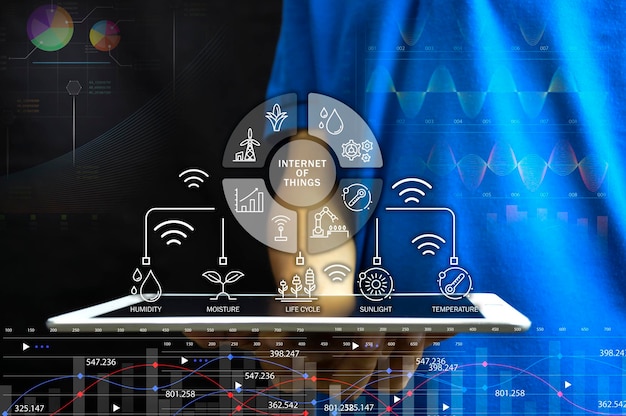Quick Read
The Paris Olympics: Redefining the Future of Live Sports Broadcasting
The Paris Olympics, set to take place in 2024, is poised to revolutionize the way we experience live sports broadcasting. With the advent of technology and the increasing demand for immersive and personalized viewing experiences, the organizing committee has announced ambitious plans to leverage the latest innovations in media production.
Virtual Reality and Augmented Reality
One of the most significant advancements will be the widespread use of virtual reality (VR) and augmented reality (AR). Viewers at home will have the opportunity to step into the Olympic venues through their VR headsets, experiencing the thrill of being there live. Meanwhile, AR technology will overlay additional information and features onto the broadcast, allowing fans to engage more deeply with the action.
Interactive Features
Interactivity is another key area of focus, with plans to implement features that allow viewers to shape their viewing experience. For instance, fans will be able to choose which events they want to follow more closely or even create customized broadcast feeds based on their preferences.
Social Media Integration
Social media integration is also a crucial part of the Paris Olympics’ broadcast strategy. Viewers will be able to engage with their favorite athletes, teams, and fellow fans in real-time through social media platforms integrated directly into the broadcast interface. This will create a more dynamic and interactive experience for fans, making them feel more connected to the event.
Personalized Advertising
Advertisers will also benefit from these advancements, as targeted and personalized ads will be made possible through data collection and analysis. This means viewers are likely to see more relevant and appealing advertisements during the broadcast, potentially reducing ad fatigue and enhancing overall viewer satisfaction.
Accessibility Features
Lastly, the Paris Olympics are committed to accessibility for all viewers, regardless of physical or cognitive abilities. Broadcasts will include features such as closed captions, audio descriptions, and sign language interpretation to ensure everyone can enjoy the event fully.
Conclusion
In summary, the Paris Olympics’ innovative approach to live sports broadcasting is set to redefine the way we experience Olympic events. With a focus on immersive technologies like VR and AR, interactivity, social media integration, personalized advertising, and accessibility features, the 2024 Olympics promise to offer viewers a more engaging, inclusive, and enjoyable experience.

Paris Olympics: Redefining the Future of Live Sports Broadcasting
Introduction
In the grand tapestry of sports history, few events hold as much significance and anticipation as the Olympic Games. Set to take place in the enchanting city of Paris, France, from July 27 – August 17, 2024, this global celebration of athleticism, culture, and unity promises to be an unforgettable experience for athletes, fans, and broadcasters alike.
Overview of the Paris Olympics
As the first Olympic Games to be held in the city since 1924, the Paris Olympics will undoubtedly leave a lasting impression. Hosting this prestigious event will not only reaffirm France’s commitment to sports but also provide an opportunity to showcase the country’s rich history, vibrant culture, and modern infrastructure.
Brief Overview of the Olympics in Sports Broadcasting History
The Olympics have long been a cornerstone of sports broadcasting, with the first televised games taking place in 1936. Since then, live coverage of the Olympics has evolved from black-and-white broadcasts to high-definition, multi-camera productions. The Paris Olympics, however, are poised to redefine the future of live sports broadcasting.
Innovative Technologies
With the latest advancements in technology at their disposal, Olympic broadcasters will have the ability to deliver immersive experiences for fans. From virtual and augmented reality to 8K resolution, the Paris Olympics will offer unparalleled access to the action.
Sustainable Practices
As the world becomes increasingly conscious of its environmental impact, the Paris Olympics will set a new standard for sustainability. From renewable energy sources to eco-friendly production techniques, the Games will strive to minimize their carbon footprint and inspire future generations to do the same.
Immersive Experiences for Fans
In an age where fans crave engagement and connection, the Paris Olympics will provide unparalleled opportunities for interaction. From virtual meet-and-greets with athletes to real-time stats and analysis, fans will feel more involved in the Games than ever before.
Thesis Statement
In conclusion, the Paris Olympics will redefine the future of live sports broadcasting through innovative technologies, sustainable practices, and immersive experiences for fans. By embracing the latest advancements in technology and prioritizing sustainability, the Paris Olympics will set a new standard for how major sporting events are produced and consumed.
Innovative Technologies in Live Broadcasting
Virtual Reality (VR) and Augmented Reality (AR)
At the Paris Olympics, innovative technologies like Virtual Reality (VR) and Augmented Reality (AR) transformed live broadcasting experience.
Implementation of VR/AR at the Paris Olympics
Fans could enjoy an enhanced experience through immersive coverage, thanks to VR/AR technologies. They had the opportunity to explore Olympic venues and events in a more immersive way than ever before (virtual tours).
Impact on broadcasting industry
The introduction of VR/AR led to new revenue streams for the broadcasting industry. Broadcasters could now offer premium content through these technologies, appealing to viewers who wanted a more interactive and immersive experience (premium content). Moreover, increased viewer engagement helped broadcasters retain their audience base.
5G and Advanced Wireless Technologies
The adoption of 5G and advanced wireless technologies significantly improved live streaming quality. Broadcasters could now offer live streaming with low latency, ensuring viewers did not miss out on any action in real-time.
Real-time data analysis and fan engagement
Advanced wireless technologies also allowed broadcasters to collect and analyze real-time data, providing valuable insights for commentators and enabling more informed commentary (real-time analysis). Additionally, fans could engage with the content in real-time through interactive features.
Artificial Intelligence (AI) and Machine Learning (ML)
AI and ML technologies revolutionized production workflows and the viewer experience.
Enhanced production workflows with AI
Broadcasters could automate content creation using AI, enabling them to produce high-quality shows more efficiently. Additionally, real-time analysis and commentary enabled producers to react quickly to breaking news or unexpected events.
Improved fan experience through personalized recommendations
AI and ML technologies could analyze users’ viewing habits and recommend content tailored to their preferences, resulting in a more personalized experience for fans. This not only increased viewer engagement but also helped broadcasters retain and attract new audiences.

I Sustainable Practices at the Paris Olympics
Carbon neutrality and renewable energy initiatives
The
Solar Panels, Wind Turbines, and other Green Technologies
Solar panels will be installed on the roofs of many Olympic venues to generate clean electricity. Wind turbines will also be used where possible to harness the wind’s power. Other green technologies, such as geothermal energy and biomass systems, may be employed to further reduce reliance on fossil fuels.
Zero Waste Strategies
The zero waste strategy is another key aspect of the Paris Olympics’ sustainability efforts. This involves implementing closed-loop systems for waste management, ensuring that all waste is either recycled or repurposed.
Electric and Sustainable Transportation Options
Sustainable transportation options will be prioritized during the Olympics to reduce emissions. This includes:
Use of Electric Vehicles
A large fleet of electric vehicles will be used for transportation during the Olympics. This includes buses, cars, and even bicycles. The use of electric vehicles will significantly reduce emissions compared to traditional fossil fuel-powered vehicles.
Bike Lanes and Public Transport
Extensive bike lanes will be constructed throughout the city to encourage the use of bicycles for transportation. Additionally, the existing public transport network will be expanded and improved to make it more efficient and attractive to Olympic visitors.

Immersive Experiences for Fans
Interactive fan zones
- Interactive fan zones
- Live commentary, analysis: fans can listen to expert commentators and gain valuable insights into the games.
- Social media integration: virtual fan zones provide a platform for fans to share their thoughts and connect with each other.
Virtual fan zones for remote fans
With the advent of technology, fans from all over the world can now engage in an immersive and interactive Olympic experience, even if they cannot be physically present at the venue. These virtual fan zones offer real-time interaction with other fans and athletes, allowing them to feel a part of the action. Some notable features include:
On-site fan zones for local fans
For those lucky enough to attend the Olympics in person, on-site fan zones offer an unparalleled experience. These areas are designed to provide fans with a range of interactive activities, including games, exhibits, and food and merchandise vendors.
Personalized experiences through data-driven insights
In addition to interactive fan zones, the Olympics is also leveraging technology to provide personalized experiences for fans. By analyzing viewer preferences and interests through data-driven insights, organizers can tailor content recommendations to each fan’s unique tastes, making the Olympics experience more engaging and enjoyable. Additionally, marketing and sponsorship opportunities can be customized to individual viewers, creating a more targeted and effective approach.
Gamification of the Olympics experience
To add an extra layer of excitement and engagement, the Olympics is also incorporating gamification into the fan experience. Through virtual competitions and challenges, fans can test their skills against each other and compete for virtual rewards. Social media integration and real-time leaderboards further enhance the competitive spirit and keep fans engaged throughout the games.

Challenges and Limitations
Ethical considerations around data privacy and security
Balancing fan experience with data protection is a significant challenge for V. With the increasing use of technology to enhance fan engagement, it’s essential to ensure that data privacy and security are not compromised. Fans expect a personalized experience, but organizations must also protect their sensitive information. Ethical considerations around data collection, storage, and usage are vital to build trust with fans and maintain a positive brand image.
Financial implications of implementing innovative technologies
Implementing innovative technologies comes with financial implications for organizations in V.. Upgrading infrastructure to support new solutions can be costly, and ongoing maintenance is a continuous expense. However, there are potential revenue streams that organizations can explore through premium content, sponsorships, and advertising. These revenue sources can help offset the initial investment and ongoing costs.
Technological limitations and the need for interoperability standards
Technological limitations are a common challenge in V.. Ensuring compatibility between different technology platforms and solutions is crucial for creating a seamless fan experience. Collaboration between stakeholders to establish interoperability standards is necessary to create a unified ecosystem that allows fans to access content across multiple platforms without interruption.

VI. Conclusion
The Paris Olympics marked a significant turning point in the history of live sports broadcasting. Bold and innovative technologies, such as virtual reality, 8K resolution, and real-time data analysis, were extensively used to provide immersive viewing experiences for fans around the world. This italic shift towards more engaging and interactive broadcasts is a clear indication of things to come in the sports media landscape.
Recap of the Paris Olympics’ impact on live sports broadcasting
The Paris Olympics demonstrated how technology can be harnessed to revolutionize the way sports events are broadcasted. The use of drones for aerial shots, instant replay systems, and social media integration were some of the standout features that set new standards for live sports broadcasting. By embracing technology, broadcasters were able to offer fans unprecedented access and engagement with their favorite events.
Future implications and potential developments in sports media landscape
Continued integration of innovative technologies: As we move forward, we can expect to see even more cutting-edge technology being used in sports broadcasting. Augmented reality, artificial intelligence, and 360-degree video are just a few examples of what’s on the horizon.
Emphasis on sustainability and fan experience
Sustainability and enhancing the fan experience are becoming key priorities in sports media. Broadcasters, teams, and event organizers are exploring ways to reduce their carbon footprint while providing more engaging and interactive content for fans.
Further growth of streaming services
Streaming services like Netflix and Amazon Prime Video have already made a significant impact on the entertainment industry, and they are poised to do the same in sports media. The rise of these platforms offers fans more choice and flexibility when it comes to watching their favorite sports.
Final thoughts on the importance of staying adaptive in an ever-evolving media landscape
In conclusion, the Paris Olympics highlighted the importance of staying adaptive in an ever-evolving media landscape. With technology constantly advancing and fan expectations continually rising, broadcasters must be prepared to embrace innovation and adapt to new trends in order to remain competitive.
